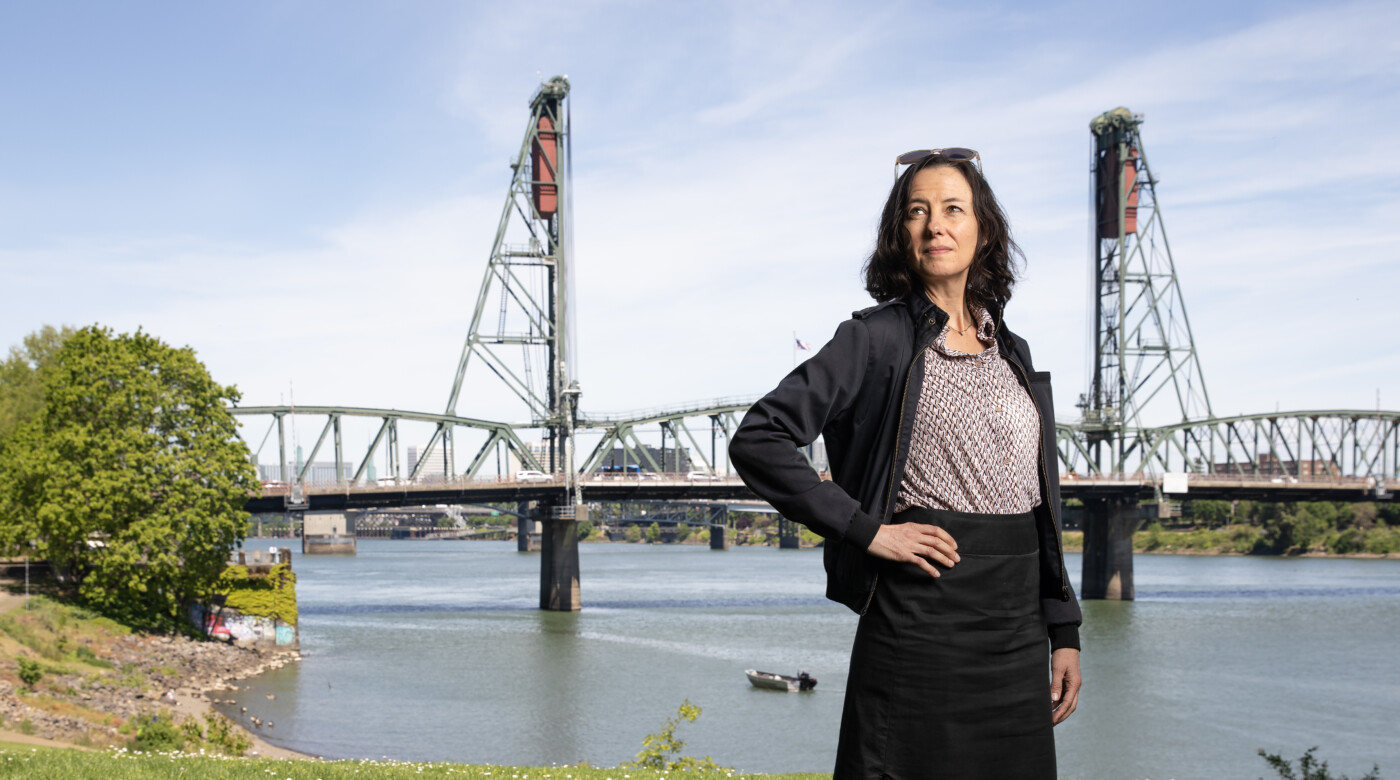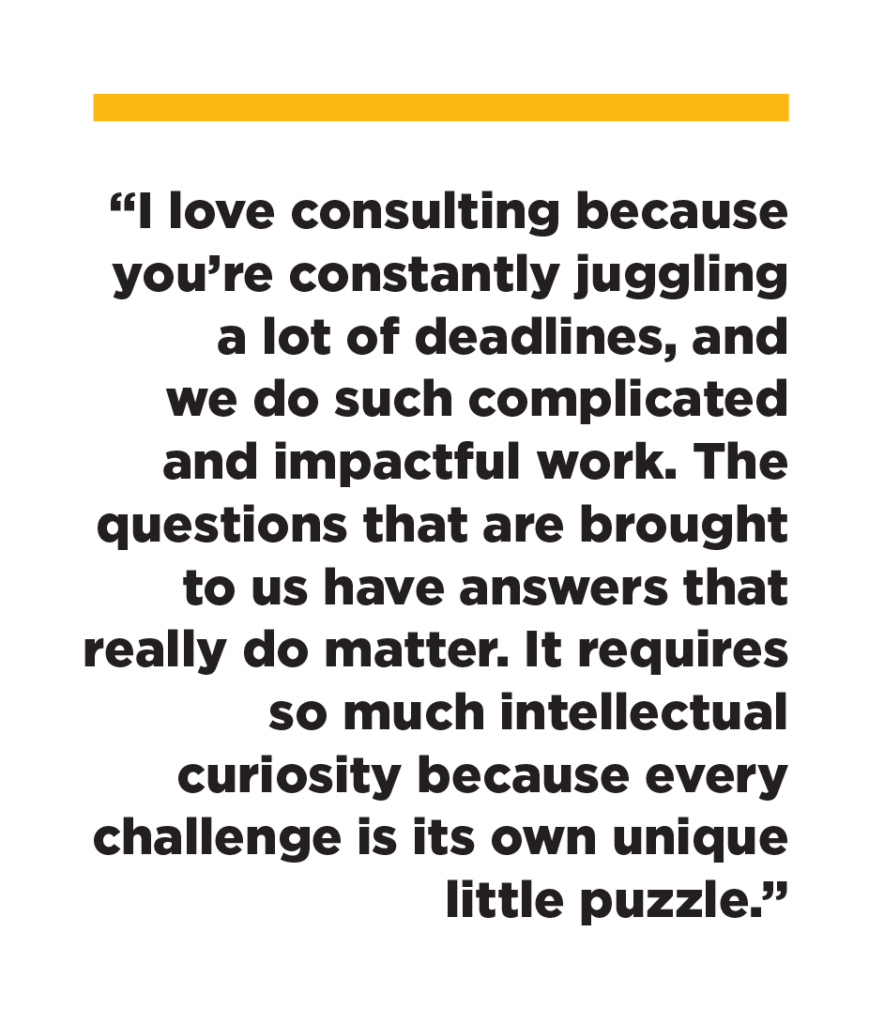Big Questions, Complex Answers: Lorelei Juntunen ’97 drives public policy across the West Coast

Image: Graduating from PLU with degrees in English and Global Studies, Loreli Juntunen ’97 went on to do graduate work in public administration and community and regional planning, focusing on finance and public budgeting questions. (PLU / Sy Bean)
By Emily Holt MFA '16
Resolute Writer
Growing up in a small town in Idaho, Lorelei Juntunen ’97 had not spent much time in cities. But when she moved to Parkland to attend PLU, she suddenly had access not only to local cities like Tacoma and Seattle, but also to cities across the globe. A travel writing class sparked a love of travel, leading to a J-Term in Cuba and full semesters abroad in Ecuador and Trinidad and Tobago. It was the first step in a 20-year journey to her current role as president and CEO of ECOnorthwest, a leading public policy and research firm in the western United States.
While at PLU, Juntunen grew curious about the design and growth of cities like Tacoma and Seattle. “I began thinking about how we build our cities, how we organize our open space and our physical buildings and infrastructure, how it intersects with social systems and economic systems,” she remembers.
Graduating from PLU with degrees in English and Global Studies, Juntunen went on to do graduate work in public administration and community and regional planning, focusing on finance and public budgeting questions. Straight out of graduate school, she accepted an internship at ECOnorthwest, then run by the two founders “moonlighting” as University of Oregon professors. The organization’s roots lie in the intersection of environmental and economic issues — as Juntunen explains, “we made our name on the Exxon Valdez trial.” One founder was an expert during the trial, on the side of the fishermen — a high-profile role that launched ECO.
In Juntunen’s first few years at the firm, she worked directly with co-founder Terry Moore, who specialized in urban economics. Juntunen worked on several hazard mitigation plans, focusing on ways local governments can pay for disaster recovery, along with growth management questions such as whether the supply of land and infrastructure is sufficient to accommodate future population growth.
She enjoyed the complexity of her consulting work, along with the impact and the challenge of constantly juggling deadlines. “It requires so much intellectual curiosity,” she says, “because every challenge is its own unique little puzzle.”
Yet Juntunen began to feel she was missing the ability to own something — to see a project through to implementation. “You do a report, you hand it off, and you kind of hope that they take your advice,” she says. “Sometimes they do, sometimes they don’t.”
In 2012, however, she had the opportunity to move into a new role: managing partner. The role enabled her to keep one foot in the research world while stepping into the policy world; it also required that she learn MBA skills by using them — working with leadership, finance, and marketing on everything from cost structure and hiring strategy to market position and brand advantage. Juntunen eventually became vice president of operations, then president.
Now, she is a thought leader in the field, with almost half of her time leading teams doing policy research, and the rest leading the firm’s strategy and growth. ECO remains rooted in the belief that place matters. “It’s hard to do good work in a place if you don’t understand it,” Juntunen says. And with a reputation for being “independent truth-tellers,” ECO is able to be selective with clients, accepting those who want solid research driven by interdisciplinary analysis and reinforced by the strength of the firm’s brand.
In Juntunen’s own consulting, her research has primarily focused on Oregon — a state with a unique approach to managing and protecting farm and forest land and coastal resources, and what she calls “a spirit of innovation, a willingness to roll up your sleeves and try to problem-solve.” It’s also the state with the first statewide land use planning system in the country.
In 2019, her team developed the methodology behind the first-ever comprehensive look at statewide housing needs to address underproduction, 20 years of population growth, and units for those experiencing homelessness. In 2021, the analysis underpinned a bill in Oregon’s state legislature, the cornerstone of a reformed housing planning system with a city-by-city estimate of housing need by income; the analysis also showed variations in housing outcomes tied to identity markers such as race, age, and disability status. This year, the analysis was put into practice, informing production goals and a dashboard to track progress and equity indicators.
Looking at what levers the public sector can pull to affect the market and achieve particular outcomes — such as housing that’s actually accessible to lower-income residents rather than simply meeting antiquated government standards for affordable housing — Juntunen has designed policies to address rapid growth across the West, including in cities like Missoula and Boise.
She’s also been able to work on a project closer to PLU: the process of returning Capitol Lake in Olympia to a natural estuary. With the state paying for dam removal and implementing the rebuilding of an estuary, additional sediment is predicted to flow into Budd Inlet. It’s a question of ecological health that requires input and commitment from multiple stakeholders, from city and state to tribes and local businesses.
Though Juntunen didn’t set out to be a planner — once thinking of them as “the people who make your zoning code and review your permits”— her time at ECO has proven the value of research-driven policy.
“With the kind of questions that are brought to us,” she says. “The answers really do matter.”






